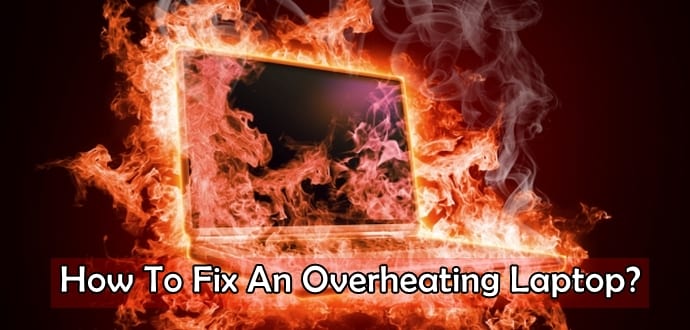Table Of Contents
Is your laptop overheating?
A steep increase in performance was enabled by chips that are ever more densely packed with transistors.
However, these developments came at a price: heating issues.

Many laptops overheat because the fan on the bottom is blocked, and the hard drive then quickly fails.
This grease generates heat but not electricity.
Why Your Laptop Is Overheating?

There are three major reasons why laptops have more of an overheating problem than desktops.
Firstly, since laptops are smaller than desktops, those electronic components are crammed in there more tightly.
The other issue is power.
Fans, heat sinks and air vents all work to cool down a laptop while its running.
Though sometimes, its just not enough.
Overheating can happen when a fan isnt working properly or theres some other malfunction.
However, sometimes it is more the users fault than the machines.
Lastly, the most common cause of overheating is the accumulation of dust inside the laptop.
What Are The Signs Of Overheating?
A sure signal that your laptop gets too hot is when your fan always runs at maximum speed.
You may also experience reduced performance because the CPU cuts back its clock speed to escape heat pressure.
Moreover, the fail safe software may trigger a sudden shutdown to prevent hardware damage.
Methods To Keep Your Laptop Cool
1.
Elevation
Raise the level of the laptop.
This slight tilt allows a lot more air to flow under the laptop, keeping it considerably cooler.
see to it that the book is not obstructing the bottom fan hole.
Try sticking four sockets from an egg tray on four corners of your laptop.
Keep it cool
(a) Buy a laptop cooling mat.
you might also buy risers, or computer stands, that have ventilation.
Dont use your laptop on soft surfaces such as a sofa, carpeting, folded quilt or pillow.
It may even overheat enough to catch on fire.
(b) Keep a cool environment.
(c) Think of using a heat sink.
Use a steel flat bar as an external heat sink.
It works because your system has to heat up more mass before it overheats.
This also means, that the larger the bar, the longer it will take for it to overheat.
It will only work if your laptop has a metal case, and it feels hot.
PCs Setting
(a) Get a program to keep track of your temperature.
(b) Stop overclocking.
If you overclock your system, it will be hotter than usual.
If you have not done it, you dont need to underclock since that will make your setup lag.
(c) Lesser the Maximum Processor states.
However, this is for Windows only.
You might be able to do this on Mac but Windows is easier.
smack the battery, select more power option.
Change plan controls for the one you use.
Then, tap on advanced power prefs.
Click processor power management, then maximum, processor states.
Set both to around 70-90%.
(80% is recommended).
(d) Lower the brightness.
He found out that neatly stacking copper coins on your laptop cools it down considerably using thermodynamics.
In the meantime you might learn about how to prevent your smartphone from overheatinghere.
source: www.techworm.net